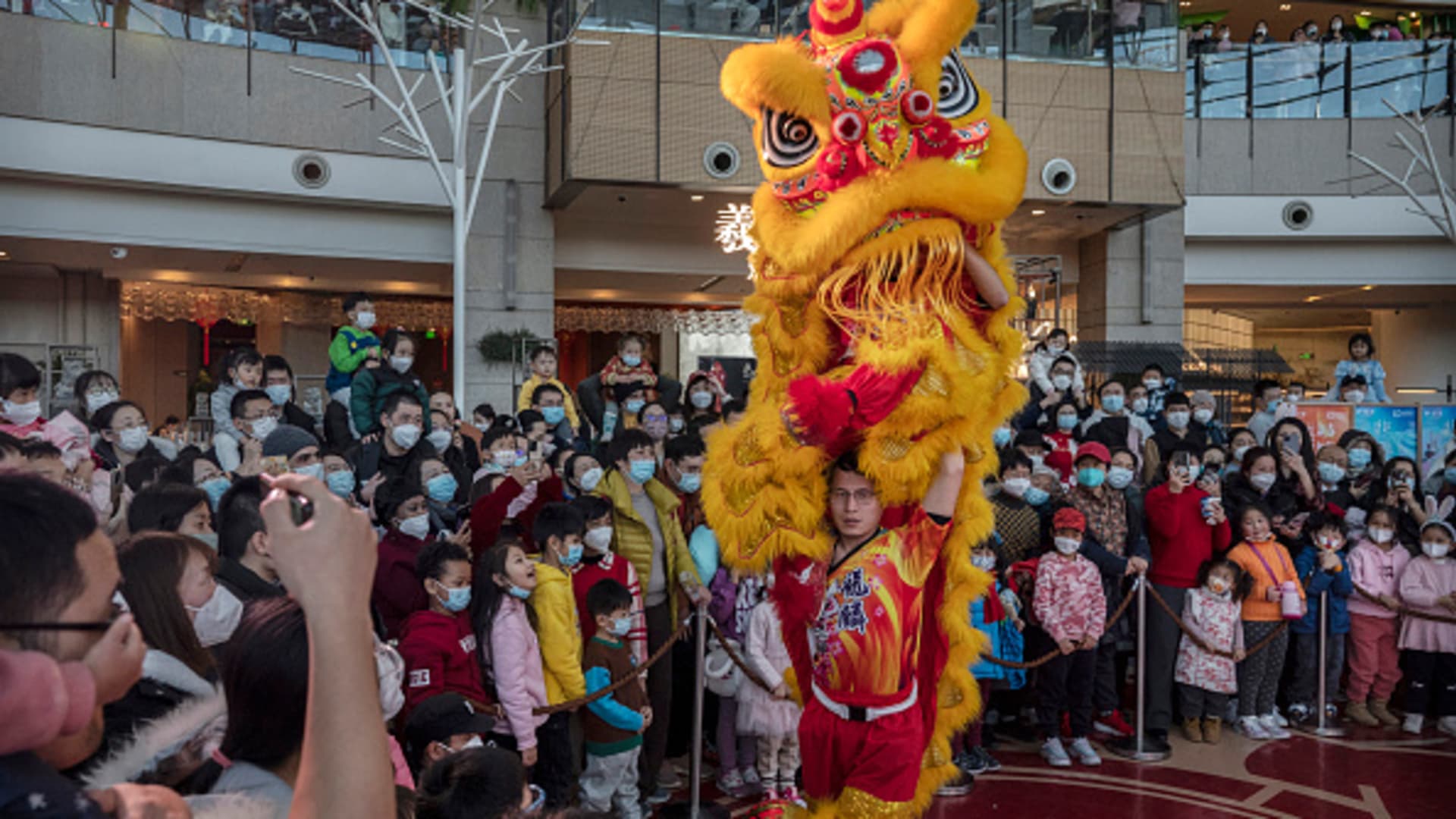BEIJING — People in China are moving past the pandemic and going out to travel, preliminary data for the Lunar New Year holiday show.
“Pent-up demand is being released as many people rush to scenic spots, watch firework shows and crowd into restaurants and hotels,” Nomura’s chief China economist Ting Lu said in a report Thursday.
China’s Covid “exit wave” is quickly ending as official data show a drop in infections, hospitalizations and deaths, he said. “China has been rapidly reaching its Covid herd immunity, as the government estimates about 80% of the population has already been infected with Covid.”
The country saw a surge in Covid infections in December, just as Beijing ended nearly three years of stringent contact tracing and border controls. The seven-day Lunar New Year, which officially began Saturday, is the first major holiday since the end of China’s Covid restrictions.
Within the country, reservations for stays at bed and breakfasts more than doubled from a year ago, while ticket sales for attractions grew by more than fivefold, according to Trip.com data for the first four days of the Lunar New Year.
The travel booking site claimed that for those four days, reservations for hotels and other tourist activities exceeded levels seen for the same period in 2019, before the pandemic.
People in mainland China were also eager to travel abroad.
Flight bookings for travel from the mainland to overseas destinations during the first four days of the holiday quadrupled from a year ago, while related hotel reservations doubled, Trip.com said.
Travel vs. big-ticket spending
It’s less clear whether the surge in tourism implies consumption in China is well on its way to recovering from the slump of the last three years. Retail sales fell by 0.2% in 2022.
Domestic daily trips for the Lunar New Year holiday travel period so far — since Jan. 8 — are up by about 50% from a year ago, according to the Ministry of Transport.
But even the tens of millions of trips each day is still down sharply from 2019 levels, the ministry said.
“Shopping mall foot traffic, new home purchases and auto sales data suggest big-ticket consumption may remain subdued,” Nomura’s Lu said.
“Growth in passenger car retail sales in volume terms dropped noticeably to -21.0% y-o-y during 1-15 January from 3.0% in December, following the ending of the seven-month 50% purchase tax cut,” he said in the report.
Chinese households’ penchant to save reached record highs last year amid uncertainties about future income and a slump in the property market. The bulk of household wealth in China is in real estate.
For people in China planning to spend more at physical stores this year, supermarkets ranked the highest, followed by convenience stores, according to an Oliver Wyman survey in December. Shopping malls ranked lower.
However, sentiment can shift quickly.
The study found that within just a week in late December, survey respondents became significantly more comfortable with venturing out.
“We think that’s a very positive sign of resilience and how quickly consumer confidence will improve,” Oliver Wyman partner Imke Wouters said in a phone interview earlier this month. “Retail sales are directly linked to consumer confidence.”
